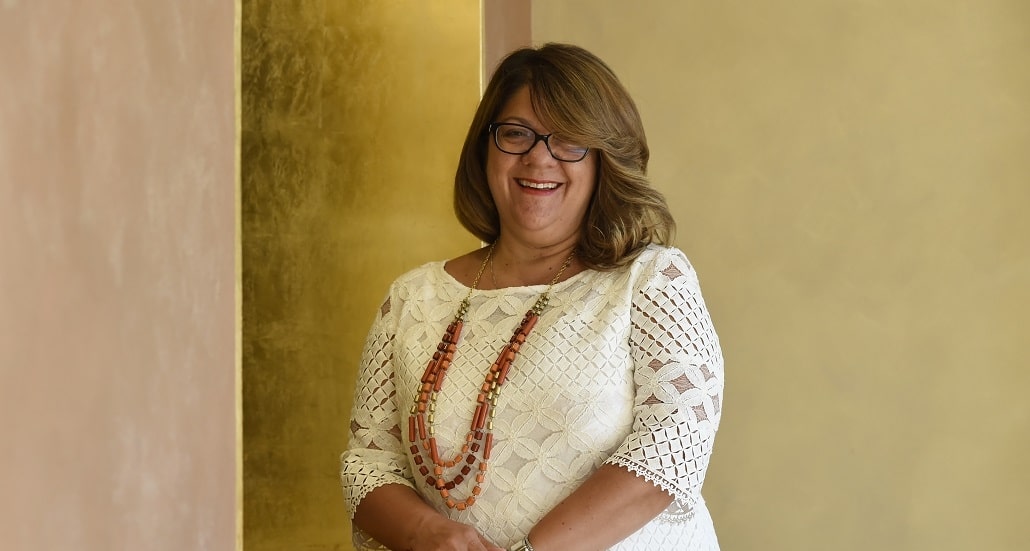Interview with Giovanna Manzi
by Stefania Ferrario – Strategy Consultant at Strategique & Researcher of Strategy and Competitiveness at the Institute for Entrepreneurship and Competitiveness (LIUC)
Since 2004, Giovanna Manzi has been serving as CEO of Italian operation at Best Western Hotel Group, a leading, global hospitality network comprised of three hotel companies, including WorldHotels Collection, Best Western Hotels & Resorts and SureStay Hotel Group, with 160 properties in Italy and over 4000 abroad. In this interview, Giovanna spoke about the main trends impacting hospitality worldwide, in the aftermath of a global pandemic. She also shared
some great advice on how to get ready for the next future and which is the business model that will take it all.
The old-fashioned “bed and breakfast” hotel, as a product, as a design, as market positioning will disappear. We need a reorganization of the hospitality offered in quantitative but also in qualitative terms: a change in how the hotel is understood and perceived.
The Breakthrough
Giovanna, how has demand changed in the hospitality world? How have customers’ needs changed?
We immediately noticed, beyond an obvious drop in demand, a change in the ways in which people looked into hotel reservations. We tend to go back to at least 30/40 years ago when the customer mainly phoned to book a room. In fact, the first effect that we noticed during the first lockdown, but even during the summer, was a significant collapse of the intermediaries – the so-called OTA “On-Line Travel Agency” such as E -Booking, etc. – and a comeback to a customer base that is more direct (and essentially not brokered). Another very important comeback is what we call “walk-in”, meaning all those customers who enter the hotel without having booked a room. It was a classic many years ago, which had not been seen in many places for several years. Then, the main customer’s interest has become safety: safety of compliance with protocols, hygiene rules, maintenance, cleaning, everything related to the issue of virus transmission. Perhaps, also, for this reason, people have started calling again, precisely because they understood that they could not find some kind of information on their own, by just consulting a website or an intermediary. This was so fundamental that it changed customer’s judgment parameters, which today focus more on a series of services and rules, and if they are respected. The Net Promoter Score has become an even more relevant aspect to keep under control. Our Net Promoter Score, in recent months, is higher than in the same months in 2019. From this point of view, those who have responded with projects, programs that went in this direction and who have managed to communicate
them effectively, have made it. As for market targets, when we reopened in May we thought that Business Travel would have recovered faster. Instead, especially thanks to smart working and to all the rules to avoid gatherings, Business Travel has not recovered. Between September and October, Business Travel recovered by around 45%. We imagine that this change – which is a structural change in company organizations – is something that will stay, that cannot be changed even when there will be a vaccine. Regarding Leisure Travel, the market this year was mainly domestic or from nearby European countries (therefore all those nations that reach us by car – Germans, Austrians, French, English, Belgians …). All the most tourist destinations and the big cities were the hardest hit due to the lack of mass tourism from abroad.
What business model has proved to work better and probably will also work best in the era after-pandemic?
The business model that worked best was certainly the family business model.
When you have a market with infinite demand – because tourism has always shown signs of good recovery and great resilience even after the economic crisis of 2008 – you don’t consider some critical issues. Then, when you find yourself in huge difficulty, as it’s happening right now, you start thinking about what to do. Until now, the hotel was a cash-flow producer. The daily cash flow generated by a medium- or large-sized hotel in a medium/large city is certainly an interesting cash flow. However, this cash flow is neither revenue nor profit. So, what happened? Very often it happened that hotel entrepreneurs, in this climate of uncertainty and variability, have tried to avoid fixed costs, and over the years, they made several efforts in trying to move away from them. They outsourced services: laundry, room cleaning, restaurant and bars, often even the spa. So, the additional services and their little margins were sold to third parties.
That’s why today, a flexible, agile and fully integrated family business model is perhaps the model that pays the most. This has somewhat subverted everything we have always said until March 2020 when we thought that hotels had to adopt an industrial, managerial model, where the owner had to be separated from management, where services had to be outsourced because of fixed costs. Well, all those hotels with a model like this are closed today.
So, we expect a lean organizational structure, with faster decision-making processes and interchangeable roles, to be the success formula of tomorrow?
It’s also a communication issue, for sure. When we had to close everything during the first lockdown, I found myself writing to our most loyal customers. Normally, I don’t sign emails, I don’t write them, but in this case, I started writing myself. We have 600,000 customers in Italy. I wrote to them, they answered me via LinkedIn …and I also replied to each of them again, one by one! It is as if the hotel owner put himself on the front line to welcome customers and tell them: “Look, don’t worry, we have done this, we know what to do”. Because in the end, in these moments, who has to put their face on it? The head of the company. Maybe that’s also why the family business model worked so well. And if, as in our case, you have both – a family model in a great brand – much better. We have all the advantages of a family organization and of its agility, but also all the advantages of an international organization that tells you what to do, how to do it, that plans the communication for you, and gives you all the directions.
What should hotels invest in? How should the strategy of these structures change?
Let’s start with the product. The old-fashioned “bed and breakfast” hotel, as a product, as a design, as it positions itself on the market will increasingly be an obsolete product that will disappear from the market – if it has not already disappeared. I expect that between March, April, May 2021 there will be a showdown and there we will see how many hotels will definitely close and how many of them will try to reinvent themselves in some ways. So, first of all, we will need a reorganization of the offer in quantitative but also in qualitative terms: a change in how the hotel is understood in terms of design and modular spaces.
I’ll give you an example: we have already launched the idea of the “smart working room”; you can go to the hotel and work in a protected and safe environment, that is a revolutionized hotel room with a sofa, a desk, etc. So, an offer that is quantitatively and qualitatively reshaped.
What about digitalization and new technologies?
Technology will be increasingly enabling customer experience in hotels. It allows to replace staff in repetitive actions and allocate those saved resources to improve services, which in our case remains a highly distinctive factor in differentiating from operators such as Airbnb, where only a quarter of the guests physically meet their host. Serving the traveller better remains a key aspect and must be enhanced with new tools to improve the experience of the stay and increasing the efficiency of back-end processes, those activities out of the consumer’s sight. The customer will gradually realize the advantages brought by technology and will enjoy the benefits thanks to a relationship that will be increasingly personalized. A fully automated and digitized hotel, on the other hand, I think is an aberration, especially if we consider the typical Italian hospitality’s culture. It is certainly a new form of hospitality, which may appeal to some countries such as China or Japan, but which is unlikely to become a widespread model.
While it is true that in some cases it creates more distance in human relationships, it is also true that it can close the gap if used in the right ways. So, technology shouldn’t be viewed with fear, as something that doesn’t allow us to have relationships, but more like an “accordion” that you can tighten or expand as needed, depending on the specific moment and need.
Giovanna, any suggestions for the future?
We know that it is a temporary crisis. Sooner or later science will find a cure, and this is not just a hope but a certainty. The question is ‘when, when this will happen and when we will go back to normal travel. Two considerations on that. My appeal to hotel owners, where possible, is to resist by finding these more familiar models, of ‘widespread sacrifice’ because closing completely (even if in some cases it is unfortunately inevitable) means pushing away and losing your clients. My second thought is that an age of splendour will be back, and this splendour will be even stronger and we will be back at the best of our abilities.
Download the full magazine – What Works? How the Business World is Reacting to Covid-19





